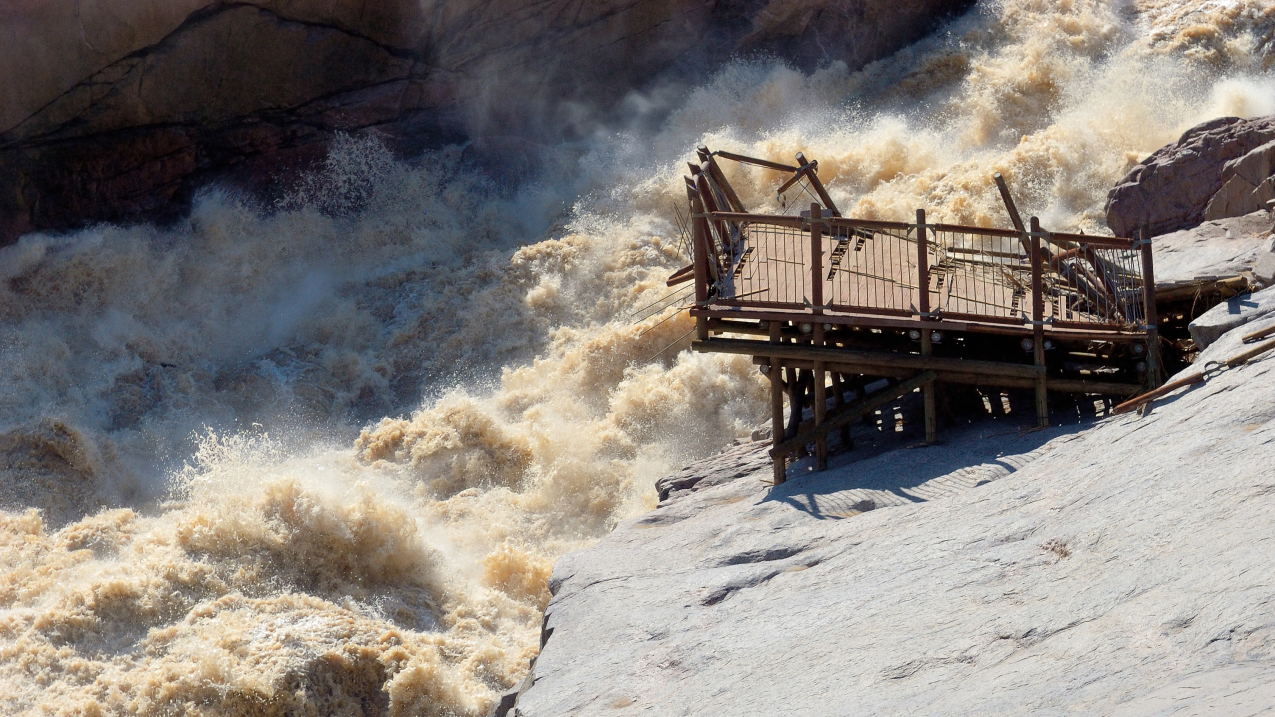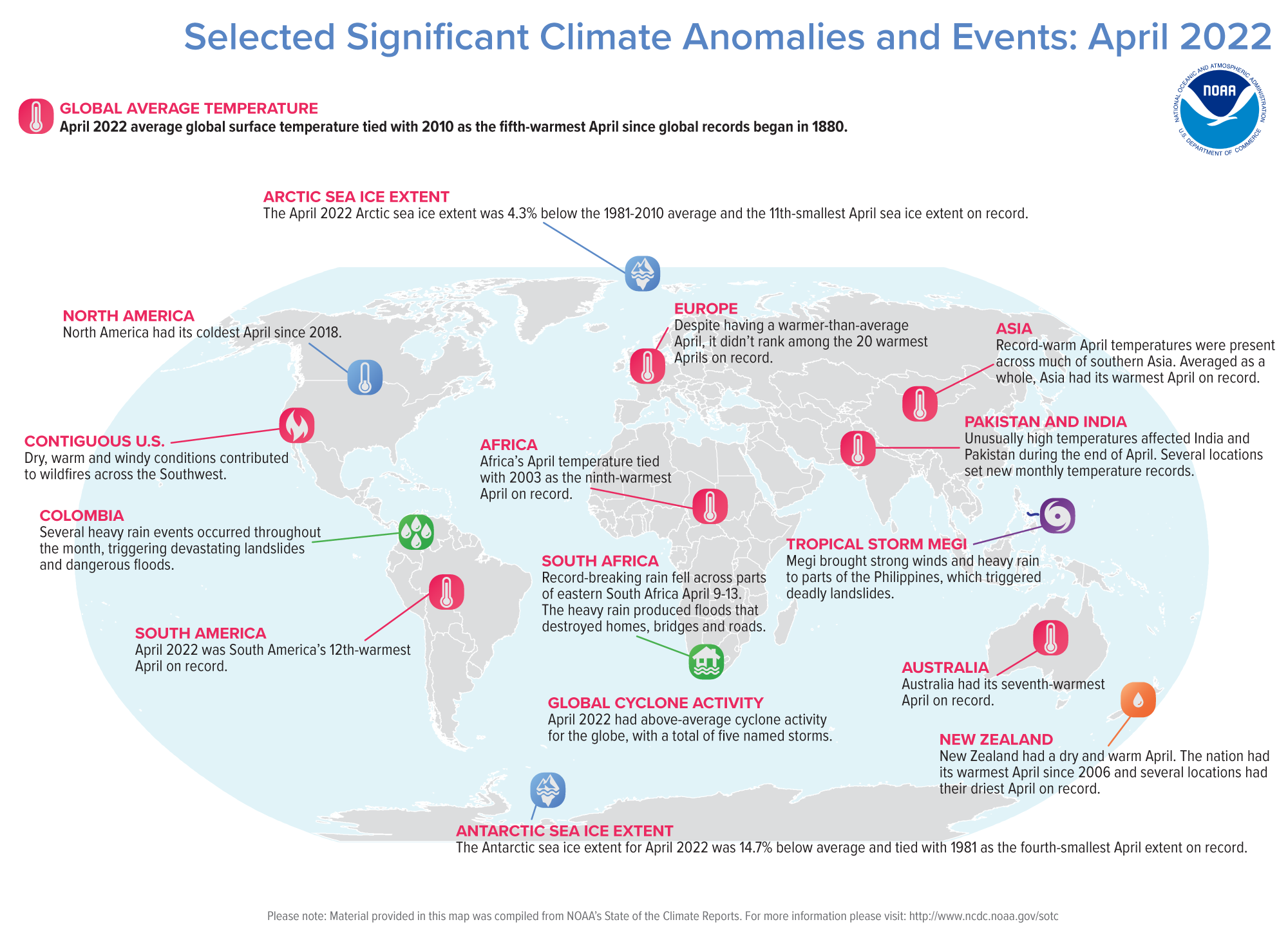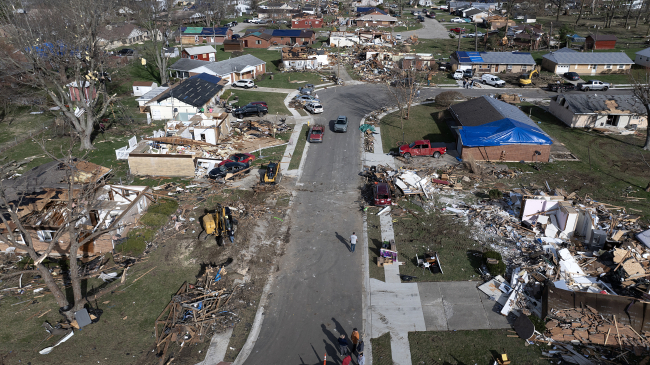Asia saw its warmest April on record

An undated photo showing an Augrabies Falls viewing platform destroyed by flooding on South Africa’s Orange River. Record breaking rain fell across parts of South Africa in April 2022. The heavy rain produced floods that destroyed homes, bridges and roads. (Image credit: GroblerduPreez, iStock/Getty Images Plus)
April was very warm throughout the globe, with the month tying 2010 as the fifth-warmest April in 143-year climate record, according to scientists from NOAA’s National Centers for Environmental Information.
Last month also contributed to a very warm start to 2022, as sea ice coverage at both poles ran well below average.
Climate by the numbers
April 2022
The average global temperature in April was 1.53 degrees F (0.85 of a degree C) above the 20th-century average of 56.7 degrees F (13.7 degrees C), tying with April 2010 as the fifth-warmest April on record.
Asia had its warmest April on record — dating back to 1910 — with the month running 4.72 degrees F (2.62 degrees C) above average. This surpassed the now second-warmest April in 2016 by 0.09 of a degree F (0.05 of a degree C). Unusually high temperatures across India and Pakistan contributed to the record heat in Asia, with several locations setting new April temperature records.
Oceania had its fifth-warmest April on record, while Africa and South America saw their ninth and 12th-warmest April on record, respectively. North America was the only continent with a cooler-than-average April, seeing its coolest April since 2018.
The world’s 10 warmest Aprils have all occurred since 2010, with 2014-2022 all ranking among the 10 warmest Aprils on record.
Year to date
The global temperature for the year to date (YTD, January through April 2022) was 1.57 degrees F (0.87 of a degree C) above average, making it the fifth-warmest such YTD on record.
Asia had its fourth-warmest YTD on record, Oceania had its seventh warmest and Europe saw its 11th warmest. South America had its ninth-warmest January-through-April YTD on record, while North America saw its coolest such YTD since 2014.
According to NCEI’s Global Annual Temperature Rankings Outlook, it is virtually certain (> 99.0%) that 2022 will rank among the 10 warmest years on record.

Other notable climate events in the report
- Polar sea ice coverage was low: Arctic sea ice extent (coverage) averaged 5.43 million square miles in April, 243,000 square miles below the 1981-2010 average and the 11th smallest for April since records began in 1979. Despite being below average, it was the largest April sea ice extent since 2014. Antarctic sea ice extent for April 2022 was 2.25 million square miles — 390,000 square miles below average — tying with 1981 as the fourth-smallest April sea ice extent on record. Only the Aprils of 1980, 2017 and 2019 had smaller sea ice extents.
- An active April for the tropics: Five tropical cyclones formed around the globe in April, which is above average. Of the five storms, the strongest was Typhoon Malakas in the West Pacific Ocean, which intensified to an equivalent Category 4 hurricane on the Saffir-Simpson scale. The Northern Hemisphere had two named storms form over the West Pacific during the month. The South Indian Ocean had two tropical storms, while the Southwest Pacific basin had one storm for the month. Between January-April 2022, there were a total of 23 tropical cyclones, which is near average.
More > Read NOAA’s global April climate report and download the images.



